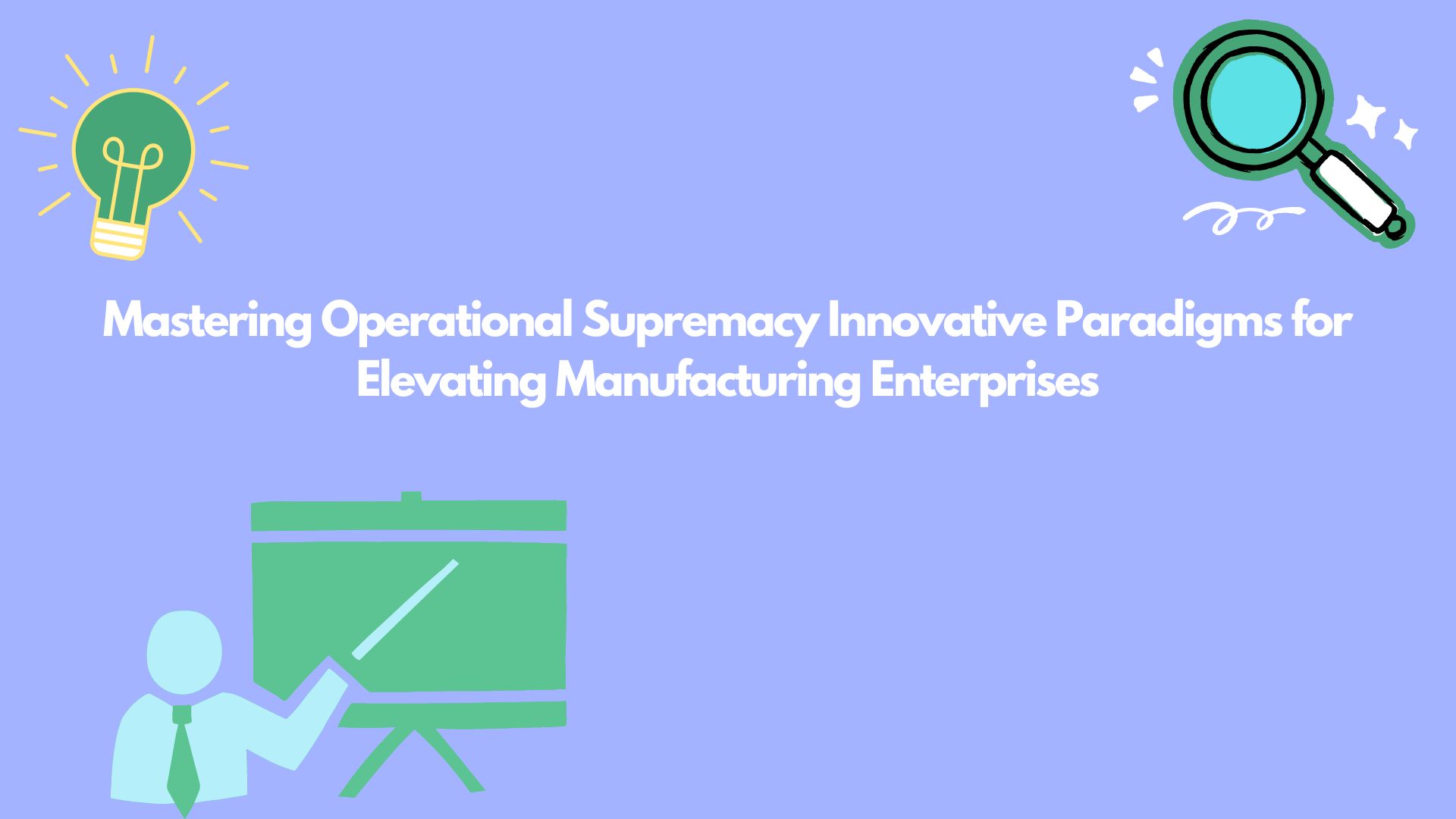In the ever-evolving landscape of modern industry, the pursuit of operational supremacy is a hallmark of distinguished manufacturing enterprises. Achieving excellence in manufacturing not only involves refining processes but also embracing innovative paradigms that propel organizations to new heights of efficiency, productivity, and competitiveness. This discourse delves into the essential strategies and cutting-edge methodologies that can revolutionize manufacturing enterprises and set them apart in a dynamic marketplace.
1. Embracing Digital Transformation
The digital revolution has ushered in a new era of operational efficiency. By integrating advanced technologies such as the Internet of Things (IoT), artificial intelligence (AI), and machine learning, manufacturers can achieve unprecedented levels of precision and automation. IoT facilitates real-time monitoring and data collection, while AI and machine learning algorithms analyze vast datasets to optimize processes and predict maintenance needs. This technological synergy not only enhances operational efficiency but also minimizes downtime and reduces operational costs.
2. Implementing Lean Manufacturing Principles
Lean manufacturing principles, originating from the Toyota Production System, focus on minimizing waste and maximizing value. By adopting lean methodologies, manufacturing enterprises can streamline processes, improve product quality, and reduce lead times. Key practices include the implementation of value stream mapping, continuous improvement (Kaizen), and just-in-time (JIT) inventory management. These principles enable organizations to eliminate redundancies, enhance workflow efficiency, and achieve a culture of perpetual improvement.
3. Advancing Supply Chain Integration
Effective supply chain management is integral to achieving operational supremacy. By fostering robust collaboration and integration across the supply chain, manufacturers can ensure a seamless flow of materials and information. Advanced supply chain strategies include the adoption of blockchain technology for transparent and secure transactions, as well as the use of predictive analytics to forecast demand and optimize inventory levels. Enhanced supply chain visibility and coordination contribute to reduced lead times, lower costs, and improved customer satisfaction.
4. Investing in Workforce Development
A skilled and knowledgeable workforce is pivotal to operational excellence. Investing in ongoing training and development programs equips employees with the latest skills and knowledge required to navigate evolving industry demands. Emphasizing cross-functional training, leadership development, and fostering a culture of innovation ensures that the workforce remains adaptable and capable of driving organizational success. Engaged and well-trained employees contribute to higher productivity, improved problem-solving, and a more agile manufacturing operation.
5. Leveraging Advanced Analytics
Advanced analytics provide valuable insights that drive strategic decision-making. By harnessing big data and advanced analytical tools, manufacturing enterprises can gain a deeper understanding of production trends, identify inefficiencies, and make data-driven decisions. Predictive analytics, for instance, can forecast potential equipment failures, allowing for proactive maintenance and minimizing disruptions. The ability to analyze and act upon data effectively is a crucial component of achieving operational supremacy.
6. Fostering Innovation and R&D
Innovation is the lifeblood of operational excellence. Manufacturing enterprises that prioritize research and development (R&D) are better positioned to stay ahead of industry trends and develop cutting-edge products and processes. Investing in R&D facilitates the exploration of new materials, technologies, and methodologies, driving continuous improvement and differentiation in the marketplace. A culture of innovation encourages experimentation and the adoption of breakthrough solutions that enhance manufacturing capabilities.
Conclusion
Mastering operational supremacy in manufacturing requires a holistic approach that integrates digital transformation, lean principles, supply chain integration, workforce development, advanced analytics, and a commitment to innovation. By embracing these innovative paradigms, manufacturing enterprises can elevate their operations, achieve exceptional performance, and secure a competitive edge in a rapidly evolving industry. The journey to operational excellence is continuous, demanding adaptability, foresight, and an unwavering dedication to excellence.









